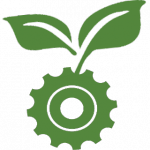Research Strategies
The MAIZE strategy is designed to ensure that publicly funded international agricultural research can become more inclusive and effective, improving maize production for greater food security, health and nutrition, reducing rural poverty and promoting sustainable resource use.
This strategy is compelled by a recognition of the importance of maize to a future in which a more sustainable and stable food system serves the needs of the global population. Demand for maize is growing strongly in the developing world, while at the same time growth in productivity has been too slow. At the same time, steps must be taken now to identify and counter the effects of climate change, and more aggressive diseases and pests.
Drawing of decades of experience in partnership with international research and development partners, the private sector, and farming communities themselves, two Research Strategies have been developed to turn the table on food security.
 |
Stress-resilient and Nutritious MaizeThis research strategy harnesses the latest technologies to develop fitter, more productive maize varieties, and builds the ability of national research institutions, smaller seed companies and community seed producers to put this improved seed in the hands of farmers. Read more |

|
Sustainable Intensification of Maize-based Farming SystemsThis Research Strategy aims to develop and promote integrated and scalable innovations to improve market access and the productivity, sustainability, and resilience of maize farming. This approach is being spearheaded around the world by three large projects: MasAgro (in Mexico); SIMLESA (in eastern and southern Africa) and CSISA in southern Asia. Read more |
See also:
Gender Strategy
Women play an important role in maize-based systems in all the regions where we work. In Africa, social and economic trends have also driven a significant rise in the numbers of female-headed households. However, persistent inequalities mean that female farmers achieve yields that are on average 20 to 30 percent smaller than those of men.This means that it is essential to address gender disparities in order to achieve our development goals, with strategies that are aware of how interventions may affect men and women farmers differently. The Gender Strategy is an important component of MAIZE designed to integrate gender awareness into our research strategies, promote more engagement with women and young farmers, and integrate gender awareness into the CRPs themselves.
Agricultural Innovation Systems in Maize
MAIZE looks at the whole picture of how knowledge is produced and used, seeing research as one element in the process of innovation. Many projects in MAIZE make use of “Innovation Platforms,” and MAIZE is investigating how to ensure that these and other project elements connect stakeholders with the research they need. Learn more about Agricultural Innovation Systems in MAIZE.
